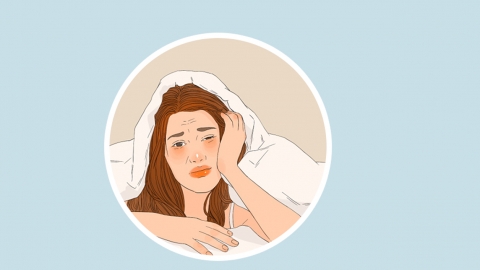What should I do about feeling irritable and anxious?
Generally, mental irritability and anxiety may be caused by factors such as lack of sleep, dietary imbalance, neurasthenia, anxiety disorder, or hyperthyroidism. It is recommended to seek medical attention promptly, identify the underlying cause, and then improve symptoms through lifestyle adjustments, medication, and other methods under a doctor's guidance. Specific analysis is as follows:

1. Sleep deprivation: Long-term staying up late or poor sleep quality prevents the brain's nerves from fully resting, making emotional fluctuations more likely. Maintain a regular sleep schedule, ensure 7–8 hours of sleep each night, avoid electronic devices one hour before bedtime, and promote better sleep through foot baths or listening to soft music.
2. Dietary imbalance: Excessive intake of caffeine and sugar, or deficiency in B vitamins, can affect neurotransmitter secretion. Reduce consumption of coffee, milk tea, and sweets; increase intake of lean meat, nuts, and leafy greens to replenish nutrients, and maintain regular meal times.
3. Neurasthenia: Prolonged mental stress leads to overexcitability and fatigue of the nervous system, accompanied by irritability and anxiety. Follow medical advice to use medications such as oryzanol tablets, vitamin B1 tablets, or Anshen Bunao Liquid for regulation. Avoid excessive fatigue and learn to relax mentally.
4. Anxiety disorder: Characterized primarily by persistent anxiety and tension that interferes with daily life. Patients should follow medical instructions to take medications such as sertraline hydrochloride tablets, paroxetine tablets, or lorazepam tablets, along with psychological counseling to alleviate symptoms.
5. Hyperthyroidism: Excessive secretion of thyroid hormones causes increased metabolism and is often accompanied by emotional irritability. Follow medical advice to use medications such as methimazole tablets, propylthiouracil tablets, or metoprolol tartrate tablets to reduce hormone levels.
In daily life, stress can be relieved through exercises such as jogging or yoga, and by communicating and sharing feelings with family and friends. Avoid long-term exposure to oppressive environments, cultivate hobbies like painting or reading to divert attention, and improve emotional well-being through comprehensive lifestyle adjustments.









